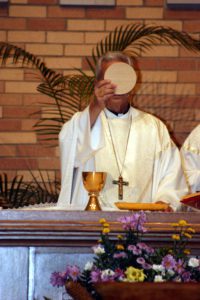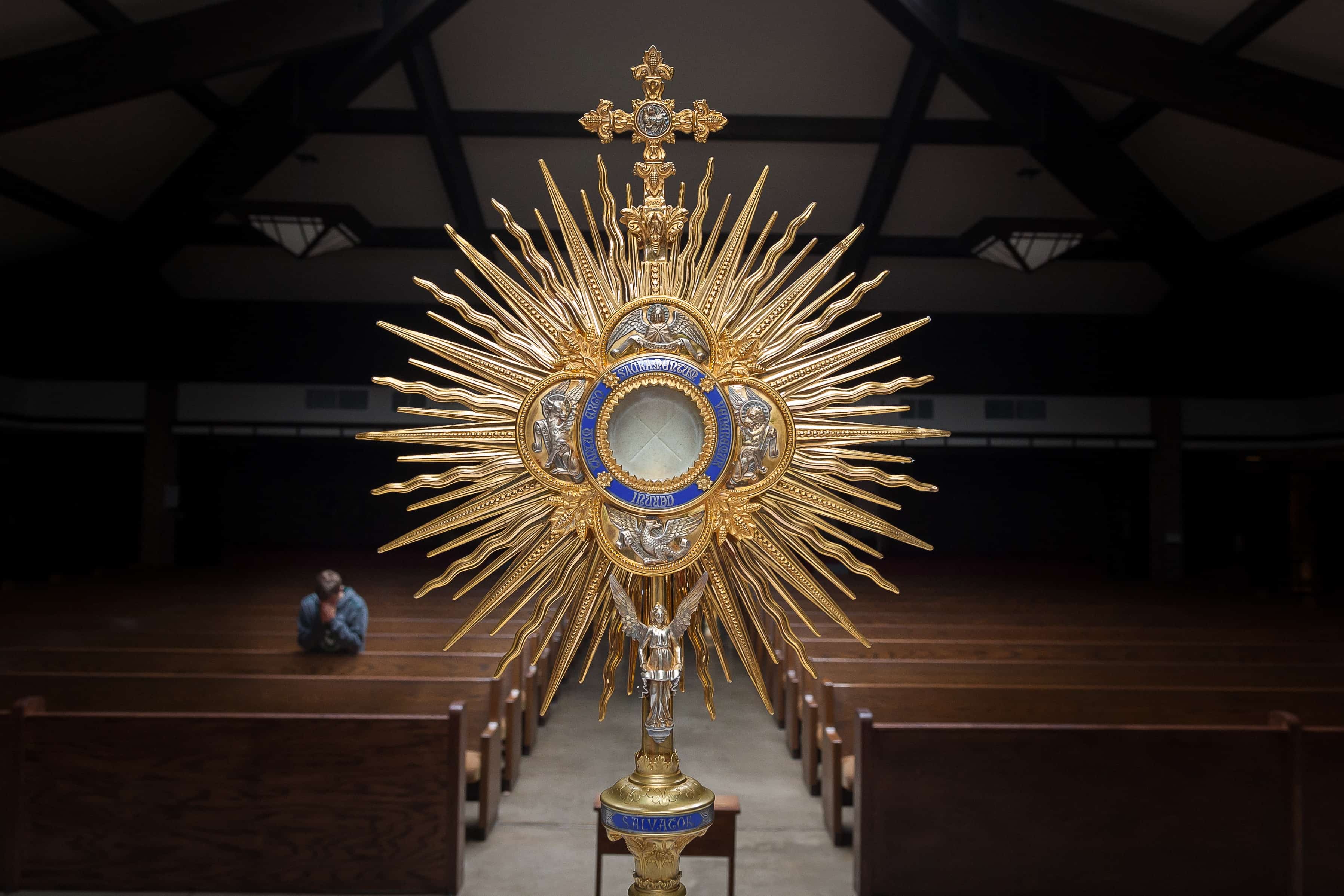
Catholics believe that the Eucharist is the Body, Blood, Soul, and Divinity of Jesus Christ. We call the mystery of the bread and wine becoming the Body of Blood of Christ transubstantiation.
The Sacrament of the Eucharist was instituted by Christ at the Last Supper. “The Eucharist is the memorial of Christ’s Passover, that is, of the work of salvation accomplished by the life, death, and resurrection of Christ, a work made present by liturgical action” (Catechism of the Catholic Church, 1409). In other words, the sacrifice of the cross is perpetuated through the celebration of the Eucharist. While Christ died once and for all, the offering of the sacrifice and the acceptance of the sacrifice by God the Father is perpetually celebrated.
Therefore, the Eucharist is “the source and summit of the Christian life” (Catechism of the Catholic Church, 1324). All the other sacraments are bound up with the Eucharist and are oriented toward it.
In the Catholic Church, one must be in full communion with the Catholic Church in order to receive the Eucharist. We believe that it is through our unity as the Body of Christ together with the calling down of the Holy Spirit that the priest acting in the person of Christ can consecrate bread and wine into the Body and Blood of Christ. When one is not Catholic or is in the state of mortal sin, that unity is effected.
Adults and youth 3rd grade and above are invited to prepare to receive the Sacrament of the Eucharist through the RCIA process. For more information about this process, please click here.
Children who are in 2nd grade are invited to prepare to receive the Sacrament of the Eucharist through the Sacramental Preparation process. Students must complete two years of Religious Education (First and Second Year Eucharist) to be eligible to receive the Sacrament. For more information about this process, please click here.
According to the law of the Church, anyone who receives their First Eucharist must first receive the Sacrament of Reconciliation (or have been baptized during the same liturgy). Anyone in the state of mortal sin must participate in the Sacrament of Reconciliation prior to receiving the Eucharist.

